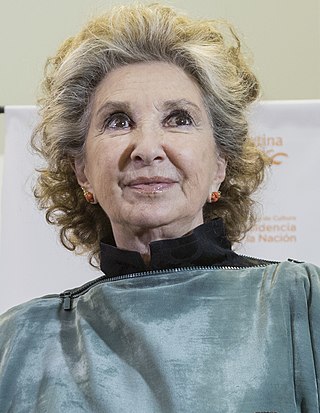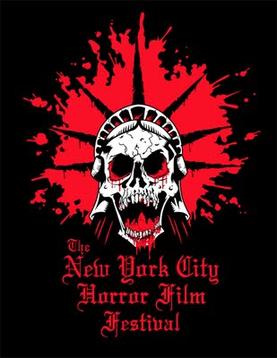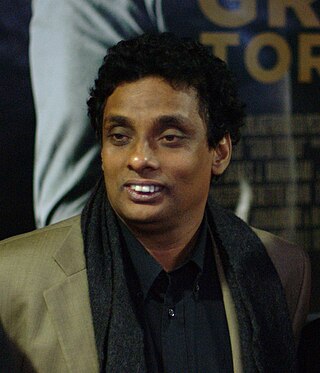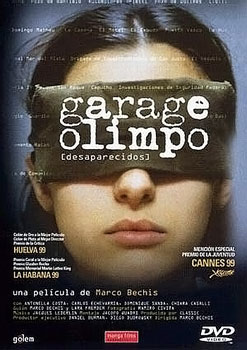
Patricia Arquette is an American actress. She made her feature film debut as Kristen Parker in A Nightmare on Elm Street 3: Dream Warriors (1987) and has since starred in several film and television productions. She has received several awards, including an Academy Award, two Primetime Emmy Awards, and three Golden Globe Awards.

Norma Aleandro is an Argentine actress. She is considered one of the most celebrated and prolific Argentine actresses of all time and is recognized as a cultural icon in her home country.

The New York City Horror Film Festival is an international film festival based in New York City that screens films from the horror genre. It was founded by Michael J. Hein in 2001. It takes place each year in New York City for a week in November.
Les Guthman is an American director, writer, editor and production executive, who has the distinction of both having produced three of the 20 Top Adventure Films of All Time, according to Men's Journal magazine, and having won the National Academy of Sciences' (U.S) nationwide competition to find the best new idea in science television, which led to his film, Three Nights at the Keck, hosted by actor John Lithgow.
Joseph Rigano was an acclaimed American character actor known for his versatile performances in film, television, and theater. Born in New York City, Rigano established himself as a talented and respected actor throughout his career.

Udaya Prasanna Vithanage is widely regarded as one of the most talented and influential filmmakers in South Asia. He is known for thought-provoking films that often deals with social, political and cultural issues. His films have received numerous awards accolades, both locally and internationally and have been praised for their innovative storytelling.

Gabriele Muccino is an Italian film director. He has worked his way from making short films only aired on Italian television to become a well-known and successful American filmmaker. He is the elder brother of actor Silvio Muccino, who often appears in his brother's films. Muccino has directed 12 films and is best known for his first American film The Pursuit of Happyness, starring Will Smith. Muccino has been nominated for and won several awards including the David di Donatello Award for Best Director in 2001 for his film The Last Kiss.

David is a 1979 West German film by director Peter Lilienthal. It tells the story of a rabbi's son in Germany during the Holocaust, who tries to raise money to escape to Mandate Palestine.

Men with Guns is a 1997 American political drama film edited, written and directed by John Sayles, inspired by the 1992 novel The Long Night of White Chickens by Francisco Goldman. It stars Federico Luppi, Damián Delgado, Damián Alcázar and Mandy Patinkin. The executive producers were Lou Gonda and Jody Patton.

Olympic Garage is a 1999 Argentine political thriller, directed by Marco Bechis.

Crane World is a 1999 Argentine film, written and directed by Pablo Trapero. The film was produced by Lita Stantic and Pablo Trapero. It features Luis Margani, Adriana Aizemberg, Daniel Valenzuela, among others.

Son of the Bride is a 2001 Argentine comedy drama film directed by Juan José Campanella and written by Campanella and Fernando Castets. The executive producers were Juan Vera and Juan Pablo Galli, and it was produced by Adrián Suar. It stars Ricardo Darín, Héctor Alterio, Norma Aleandro, Eduardo Blanco and Natalia Verbeke.

The Roof is a 1956 Italian drama film directed and produced by Vittorio De Sica.

Gerard Parkes was an Irish-born Canadian actor. He was born in Dublin and moved to Toronto in 1956. He is known for playing Doc on the Canadian Broadcasting Corporation television series Fraggle Rock and the bartender in the film The Boondock Saints and its sequel The Boondock Saints II: All Saints Day.
Inoka Sathyangani Keerthinanda is an internationally acclaimed Sri Lankan film director, producer and former Chairperson of Sri Lanka Rupavahini Corporation. In 2002 she received critical acclaim for her maiden effort Sulang Kirilli, which deals with the theme of abortion. The film won the highest number of awards won by a single film in the history of Sri Lanka's film industry. She is an active member of "Colombo Independents Cinema Forum" which works towards a "better and wholesome Srilankan cinema". After a highly productive maiden venture, she is regarded as one of the few successful female directors in Sri Lanka.
SIGNIS (official name: World Catholic Association for Communication) is a Roman Catholic lay ecclesial movement for professionals in the communication media, including press, radio, television, cinema, video, media education, internet, and new technology. It is a non-profit organization with representation from over 100 countries. It was formed in November 2001 by the merger of International Catholic Organization for Cinema and Audiovisual (OCIC) and International Catholic Association for Radio and Television (Unda). At its World Congress in Quebec in 2017, SIGNIS welcomed also former member organisations of the International Catholic Union of the Press (UCIP).
David Riker is an American screenwriter and film director. He is best known for his award-winning film The City, a neo-realist film about the plight of Latin American immigrants living in New York City. Riker is also the writer and director of The Girl (2012), and the co-writer of the films Sleep Dealer (2008) and Dirty Wars (2013).
Paul S. Mezey is a New York-based independent producer and founder of Journeyman Pictures. He has produced a number of critically acclaimed films including Maria Full of Grace which received a 2005 Academy Award Nomination for Best Actress in a Leading Role and Half Nelson starring Ryan Gosling which received a 2007 Academy Award Nomination for Best Actor in a Leading Role. Mezey also worked as a producer on the 2021 film Marcel the Shell with Shoes on, alongside Elisabeth Holm. The film was nominated for an Academy Award for Best Animated Feature Film.

Strawberry and Chocolate is a 1993 internationally co-produced film, directed by Cuban filmmakers Tomás Gutiérrez Alea and Juan Carlos Tabío, based on the short story "The Wolf, The Forest and the New Man". Senel Paz had witten the short story in 1990, and also wrote the screenplay for the film. It was the first Cuban film to be nominated for an Academy Award.
Sud is a 71-minute 1999 Belgian-Finnish-French English-language independent documentary art film directed by Chantal Akerman.













